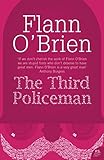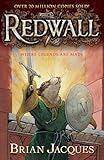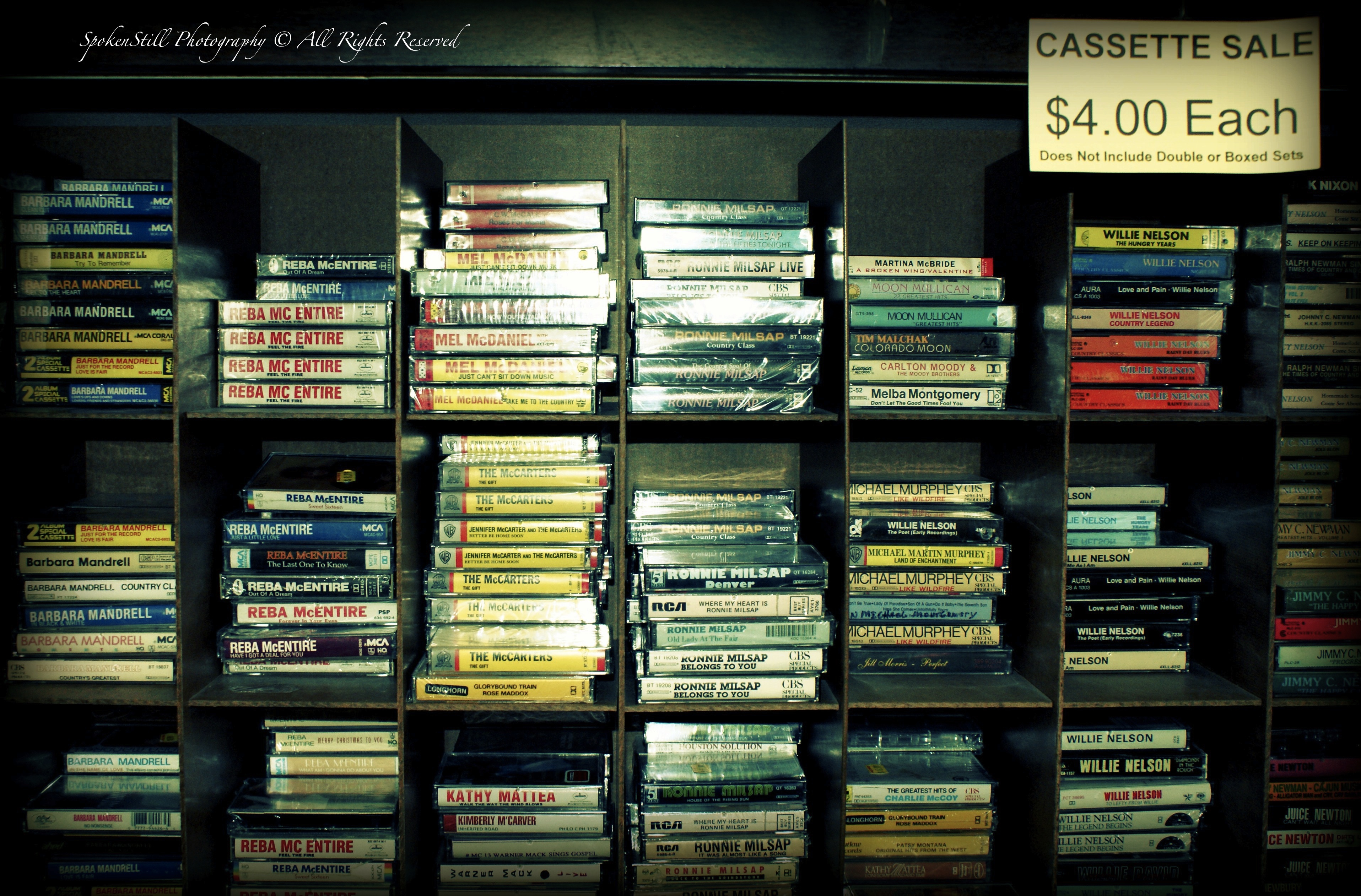1.
Like many of you reading this magazine, I view work primarily as a distraction from reading.
In this, I consider myself relatively lucky; as a teacher, much of my work consists of reading, and although this reading – papers mostly, with some student fiction mixed in – isn’t always what I’d choose to read in my spare time, it’s a whole lot better than being asked to evaluate something dry and bureaucratic: manuals for outdated AV equipment, maybe, or a prospectus on public health.
In fact, I’m doubly lucky, because once a week my job shifts from the classroom to the nearby library archives, where I work in data entry, processing very old books. I’m not lucky because of the work itself, per se, which is rote; after nine hours (minus lunch) of scanning bar codes and typing in author, title, and publication history my brain feels both mechanical and somewhat foggy: a kind of drunken robot. I’m lucky because the rote nature of the work allows me to listen to books on tape.
I say allows, but I could just as easily say requires, since without the distraction these books provide I might be unable to finish my tasks at all.
(Here is where I will refrain from speaking at length of the distant sadness contained in a stack of micro-run poetry chapbooks from the 1970s: the men with mutton chops in quilted jackets, seated on the hood of a rusty car, and who thank said car in the acknowledgments; the practicing nuns with highly sexual poems regarding Jesus and the potency of wayward bulls.)
At its best, the book on tape leads the listener into a kind of reverie. By shifting the locus of linguistic labor onto the reader’s voice, the listener receives the vision of the story directly. I can think of nothing closer to the model of what John Gardner called “a vivid and continuous dream.” Your mind can wander, while you work. You type in this world. You live in another.
2.
I know I shouldn’t use the term “book on tape.” It’s doubly anachronistic; tapes have long since been replaced by CDs, and CDs, in turn, by the seeming purity of a digital file, recorded in a studio somewhere and then uploaded to a central database where a listener can access it when needed: in the cold, dry basement of library storage, pressed up against a cinderblock wall, ears wrapped up in cushy, noise-canceling headphones.
But I can’t help holding on to the term. It reminds me of physical history, of which I was once a part. At twenty-nine, I’m just old enough to remember the time when, entering the public library in the small city of Bridgeton – a slowly dwindling farm-supply and lumber outpost in rural South Jersey – my mother and I would be confronted by a wide, tall shelf labelled “Books on Tape,” which, unlike the library’s books, were limited to one rental at a time. They were big, bulky plastic packages, much thicker than video boxes, sometimes containing up to eight tapes, and, if the book was especially long, composed of two packages, held together at the spine.
I don’t know who their target audience was, other than bookish ten-year-olds like myself, who enjoyed the experience of being read to, but I like to imagine it spanned all class and age brackets; a soybean farmer listening to Raymond Chandler while piloting his combine through an autumn field, or an aging tax attorney listening to Dickens while picking his kids up from some springtime soccer game.
 I used the tapes primarily to fall asleep. As a small child I was terrified of the dark, and although for various reasons (divorce, other distractions) my parents had given up reading to me, a voice in the night remained a source of comfort. On a bad night – or if the book was especially riveting – I’d stay awake for the whole story, as I once did for The Hound of the Baskervilles.
I used the tapes primarily to fall asleep. As a small child I was terrified of the dark, and although for various reasons (divorce, other distractions) my parents had given up reading to me, a voice in the night remained a source of comfort. On a bad night – or if the book was especially riveting – I’d stay awake for the whole story, as I once did for The Hound of the Baskervilles.
(A giant howling dog, its snout outlined in phosphorus – not highly recommended as a nightmare cure.)
On a good night I was asleep before the warning came – end of side one – and the tape shuttled to a stop.
Thus I have an imperfect recollection of much of the most popular authors offered by my small-town public library: Dickens, Poe, Austen. Some chains, a raven, several weddings of dubious provenance.
I also came to the terrible misconception – misled, I think, by the subtitle Read by the Author, which I came to believe was common to every package – that the person reading was invariably the person who’d written the book: a mistake I blame for my wicked tendency to conflate author and narrator, Holden and Salinger, Wormwood and C.S. Lewis.
In those days I had very vivid dreams. I assume everyone’s dreams are more vivid in childhood – but I sometimes wonder, flattering myself shamelessly, if mine weren’t more vivid than most, falling asleep with someone else’s world playing into my ear.
3.
Nowadays I face a problem: how to get access to books-on-tape, down in the archives? The library basement has no tape or CD player, and the computer I use is old and slow. Moreover, I don’t want to spend any money; paying for distractions in order to accomplish paid labor seems a little outrageous to me, or maybe it’s the fault of Bridgeton Public Library, for hooking me on the concept of free media, years ahead of the curve.
It makes sense that books-on-tape would be expensive. There’s the matter of copyright, and then there’s the matter of finding an actor to read for long stretches at a time. As any listener knows, the reader matters; I’ll never forget the aesthetic experience of hearing Basil Rathbone read “The Fall of the House of Usher,” Poe’s already purple prose brought to the maximum pitch of ridiculousness, or the nearly unpronouncable vocabulary of H.P. Lovecraft, forced through the gravelly larynx of underappreciated voice actor Wayne June.
It’s hard work to talk for an entire day.
Such actors add a level of subtlety and clarity to the experience – but are they necessary? When I think of the books-on-tape from my childhood, it isn’t the professional sheen I remember, but the sense of intimacy, of one voice speaking directly to the listener. Listening to a book-on-tape is always, in some sense, nostalgic; one remembers the primal experience of being read to as a child – and most of us weren’t lucky enough to have trained actors as parents.
Which is why I’ve become so enamored with the website Librivox, which bills itself, tongue-twistingly, as the “acoustical liberation of books in the public domain.” Essentially, it’s a database of books that are out of copyright, read by volunteers, and available for free.
Amateurism is part of the purpose here, but it has its drawbacks. Speaking charitably, one has to admit that the readers vary widely in their performance styles; as their website puts it, “[w]e’ll accept you no matter what you sound like.” The breadth of titles is fairly impressive, however, and not all that different from the stuff I once found in the library: classics, mostly, with a few odd treasures thrown in: Japanese ghost stories, sea-faring yarns, early pulp sci-fi.

 Most impressive, however, is the amount of reading labor these people are willing to volunteer for free. Several weeks ago I spent my entire workday listening to a recording of Heart of Darkness made by Kristin LeMoine, a mother of two who has somehow found the time to record nearly a hundred full-length audiobooks, including works by H.G. Wells, Dickens, and Sir Walter Scott, and whose pleasant, straightforward, and clear reading style helped cool down some of Conrad’s more overheated descriptions. I’d trust her with Ivanhoe, if I ever have the time to listen to the whole thing.
Most impressive, however, is the amount of reading labor these people are willing to volunteer for free. Several weeks ago I spent my entire workday listening to a recording of Heart of Darkness made by Kristin LeMoine, a mother of two who has somehow found the time to record nearly a hundred full-length audiobooks, including works by H.G. Wells, Dickens, and Sir Walter Scott, and whose pleasant, straightforward, and clear reading style helped cool down some of Conrad’s more overheated descriptions. I’d trust her with Ivanhoe, if I ever have the time to listen to the whole thing.
How can I adequately thank Kristin LeMoine for her work? I suppose a short note on the LibriVox forums might do, but it couldn’t do justice to the odd intimacy of living with a stranger’s voice for the entirety of a working day, hearing the pops of their home microphone and the sudden sharp edits that show when they got up to go to the bathroom, or to feed their children.
4.
So what makes a good reader? My youthful confusions aside, having written a book doesn’t always make you a good candidate for reading one, as evidenced by the poor performance of many of the authors featured in “X reads Y” podcasts. Perhaps this should be self-evidence from experience with fiction readings. Most writers overvalue the work of words on the page, and undervalue the excitement of rhythm and cadence. Or maybe they’re simply shy.
 (Though this disillusionment doesn’t stop me from conjuring up writer/reader combinations made impossible by time and language: Woolf/Proust, Williams/Stein, and – my personal favorite – Beckett reading Flann O’Brien‘s absurdist masterpiece The Third Policeman with the same lilting familiarity he brought to his own work.)
(Though this disillusionment doesn’t stop me from conjuring up writer/reader combinations made impossible by time and language: Woolf/Proust, Williams/Stein, and – my personal favorite – Beckett reading Flann O’Brien‘s absurdist masterpiece The Third Policeman with the same lilting familiarity he brought to his own work.)
I suppose I have high standards for reading aloud. My father, once an aspiring actor, was an eager reader when it came to children’s books: a parent who could “do the voices,” as the kids like to say. I still remember sitting in our living room, watching the sun setting over the marshland in the window behind his head, while he read to us from Brian Jacques‘s Redwall:
 “The high, warm sun shone down on Cluny the Scourge. Cluny was coming!”
“The high, warm sun shone down on Cluny the Scourge. Cluny was coming!”
He intoned the second sentence, which repeated later in the chapter, like an ominous refrain, in a voice I remember as a basso profondo.
(Actually, my father is a baritone. These things deepen over time.)
Not all the readers at Librivox live up to this lofty example. Some recordings are ruined by a reader’s mumbling, others have poor fidelity, and others are simply ill-suited to the material; after all, everyone has their own preference when it comes to accents. Kristin Lemoine aside (who is, as far as I can tell, an American), I prefer the English and Irish readers. Maybe it’s simple exoticism, but I prefer the rolling cadence of the UK to the flat affect of the U.S. readership, especially when the work itself is English or Irish in origin.
And yet – part of the beauty of a site like Librivox is the sense of personal attachment evident in all these volunteers, professionalism be damned, and sometimes a less traditional voice lends an extra dimension to a story. Certainly gender is not an obstacle to good interpretation; if anything, women reading men (and vice versa) can adds depth to an episode, as when the aforementioned Kristin LeMoine narrates Marlowe’s visit to Kurtz’s former fiancee at the end of Heart of Darkness – a man might have succumbed to the temptation to turn the fiancee into a fool, but LeMoine renders her sympathetically, which only makes the tragic irony more painful.
Some of my most satisfying Librivox experiences have been episodes of productive disjunction; I have heard no greater depth of feeling than in the voice of Southern woman reading Thomas Hardy, and this reminds me of the original potential of books to bring you other states of mind, and to make connections.
I myself am not a Victorian Englishman, yet I feel a deep attachment to Hardy’s Wessex and its language. Why should I be so hypocritical, then, as to expect his words in an English accent?
5.
Perhaps I’m too attached to reading aloud: to both being read to and reading to others. It’s an iron rule in my marriage, for instance, that I am not allowed to read passages in the book I’m currently devouring out loud to my wife, especially when she is in the middle of a book of her own. There is something mean-spirited and arrogant about the impulse to continually narrate. One can’t simply stand in the middle of a train platform, reciting Whitman in a basso profondo, without risking a police escort. There must be limits.
That being said, there are precious few opportunities in life to read and be read to, and there is something utopian to me about the creation of a site like Librivox, which – unlike Goodreads, which is slowly but surely evolving into yet another marketing arm of Amazon – operates solely on people’s inexhaustible appetite for reading and listening. It seems like a triumph of the old conception of the internet, which promised you access to thousands of other people who were willing to share their dreams and passions with total strangers: a conception which is increasingly being crowded out by more market-driven forces.
It is hard to explain, now that the internet has effectively annexed small towns such as the one in which I grew up, how important it was to me to go every week to the public library and pull those bulky plastic cases off of the shelves, one at a time, to take home. When I imagine the other people who walked through its Neoclassical facade and lingered a while at the same shelf, I can’t help but overlay my own experience onto them, and imagine they also used them a sort of portal into alternate lives: riding a steamboat down an African river as they ferried their children to basketball practice, or fretting over the foolish marriages of aristocratic Englishwomen as they double-checked the finances of their farm.
Time marches on, and there’s no use being nostalgic about old media. If I still lived near Bridgeton, I could get all the free audiobooks I wanted; the local library now provides free downloads to those who hold a library card.
But I am more interested in the way sites like Librivox have flipped the script on our conception of the audiobook; it has made us actors, once again. It used to be we went to library to hear stars of stage and screen intone the classics. It’s a delightfully democratic development that now, when we get a day off from work, we can settle down in front of our computers with a glass of water, turn on our microphones, and return the favor.
Image via Flickr/Jamie Pfister.










